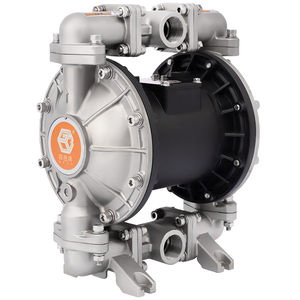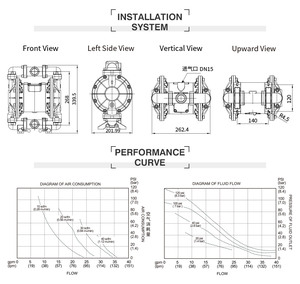Introduction to Flow Meter Usage
Flow meters are vital instruments used across various industries to measure the flow rate of liquids and gases. Understanding flow meter usage is essential for optimizing processes, ensuring safety, and achieving compliance with industry standards. These tools facilitate the monitoring and control of fluid dynamics in applications ranging from water treatment plants to oil and gas operations, playing a critical role in efficiency and data accuracy.
Types of Flow Meter Usage
- Positive Displacement Flow Meters: These meters measure the volume of fluid by trapping a fixed amount in a chamber and counting the number of times the chamber fills and empties.
- Velocity Flow Meters: They determine flow rate by measuring the velocity of the fluid, utilizing technologies such as electromagnetic and ultrasonic methods.
- Mass Flow Meters: Designed to measure the mass of a fluid passing through the meter, these devices are pivotal in applications requiring precision, such as chemical processing.
- Open Channel Flow Meters: Ideal for unpressurized flow situations, these meters measure the flow of fluid in open channels, common in wastewater management.
Applications of Flow Meter Usage
Flow meters find extensive applications across numerous sectors, providing crucial data for monitoring and decision-making:
- Water and Wastewater Treatment: Ensures proper flow rates in treatment facilities, aiding in the management and purification processes.
- Oil and Gas Industry: Used for monitoring and controlling the flow of oil, gas, and other hydrocarbons, ensuring safety and regulatory compliance.
- Chemical Processing: Essential for accurately measuring the flow of chemicals, contributing to safe handling and processing of hazardous materials.
- Food and Beverage Industry: Monitors the flow of ingredients and finished products, ensuring quality control and adherence to health regulations.
Features and Benefits of Flow Meter Usage
Implementing flow meters brings several advantages that enhance operational efficiency and reliability:
- Accuracy: Modern flow meters offer high accuracy in flow measurement, reducing the margin of error in crucial applications.
- Real-time Monitoring: Flow meters provide live data, allowing for quick adjustments and interventions to mitigate issues.
- Durability: Manufactured from robust materials, flow meters are designed to withstand harsh operating conditions, including extreme temperatures and corrosive environments.
- Data Integration: Many flow meters are equipped with digital outputs that facilitate integration with control systems and data analytics platforms.
How to Choose the Right Flow Meter for Usage
When selecting a flow meter, consider the following factors to ensure optimal performance:
- Fluid Characteristics: Analyze whether the fluid is Newtonian or non-Newtonian, its viscosity, temperature, and pressure conditions.
- Flow Rate Range: Determine the expected flow rates to select a meter that accurately covers the range of operation.
- Installation Environment: Assess the environment where the flow meter will be installed, including space constraints and potential exposure to chemicals.
- Calibration and Accuracy: Choose a meter that meets the required accuracy standards for your specific application.











































































































































































